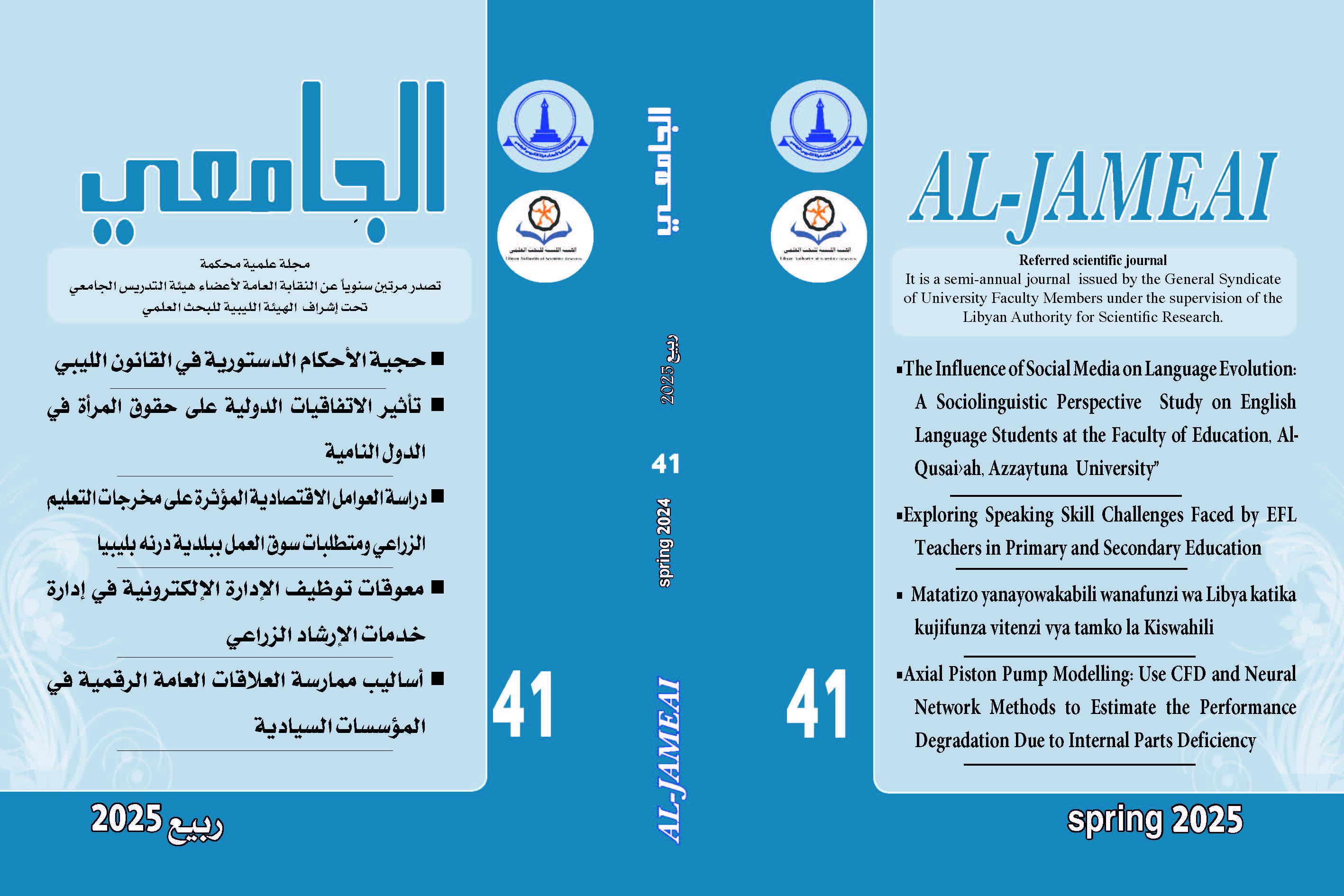Effect of Creatinine Extracted from the Bovine Urine on the Corrosion of Mild Steels in 0.5 M HCl
(Environmental Aspect)
الملخص
Abstract:
Bovine farm waste, which includes urine, is typically thrown away and
pollutes the environment. In the current study, bovine urine has been employed
as a primary component to create an inhibitor extract that will prevent mild steel
from corroding and prevent livestock waste from contributing to issues in the
community such environmental pollution and poor air and water quality. The
corrosion rate, inhibitor efficiency, adsorption and thermodynamic study has
been experimentally investigated using weight loss technique. The outcome
has demonstrated that the creatinine extract is an effective mild steel corrosion
inhibitor in 0.5 M HCl at room temperature. The creatinine extract dosage
ranged from 0.396 to 4.420 M. The corrosion rate and inhibitor efficiency
ranged from 23.99 to 241.38 mpy and 58.16 to 90.06 % respectively. The
weight loss calculations showed that the corrosion rate of mild steel in HCl
media decreases with increasing the inhibitor concentration. So, it was
concluded that the Creatinine has excellent inhibition effect on the corrosion
of mild steel in HCl medium. The thermodynamics parameters reveals that
the mechanism of inhibitor adsorption was spontaneous and physisorption.
The Creatinine inhibitor which extracted from bovine urine obeying to all
applied adsorption isotherm models. Thus, it has a great adsorption on the
surface of mild ste
المستخلص:
نفايات مزارع الأبقار، التي تشمل البول، عادة ما تُلقى في القمامة وتلوث البيئة. في هذه الدراسة، تم استخدام بول الأبقار كمكون أساسي لإنشاء مستخلص مثبط يمنع تآكل الفولاذ الطري ويحول دون مساهمة نفايات الماشية في مشاكل المجتمع مثل تلوث البيئة ورداءة جودة الهواء والماء. تم دراسة معدل التآكل وكفاءة المثبط، بالإضافة إلى الدراسة الامتزازية والديناميكية الحرارية، تجريبيًا باستخدام تقنية الوزن المفقود. أظهرت النتائج أن مستخلص الكرياتينين هو مثبط فعال لتآكل الفولاذ الطري في محلول HCl 0.5 عند درجة حرارة الغرفة. تراوحت جرعة مستخلص الكرياتينين من 0.396 إلى 4.420 م. تراوحت معدلات التآكل من 23.99 إلى 241.38 مل/سنة وكفاءة المثبط 58.16 إلى 90.06%. أظهرت حسابات فقدان الوزن أن معدل تآكل الفولاذ الطري في وسط HCl ينخفض مع زيادة تركيز المثبط. لذلك، تم الاستنتاج بأن الكرياتينين له تأثير مثبط ممتاز على تآكل الفولاذ الطري في وسط HCl. تكشف بارامترات الديناميكية الحرارية أن آلية امتصاص المثبط كانت تلقائية وامتزازا فيزيائيًا. يمتثل مثبط الكرياتينين المستخرج من بول الأبقار لجميع نماذج الإيزوثيرم الامتزازية المطبقة. وبالتالي، فإنه يمتلك قدرة كبيرة على الامتزاز على سطح الفولاذ الطري.
التنزيلات









